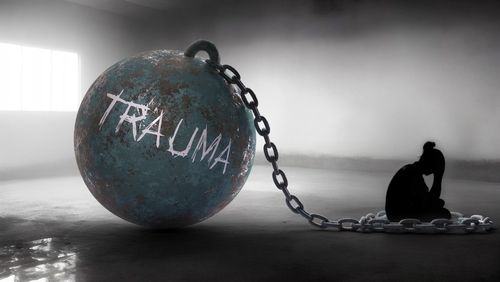 Religious experiences are deeply personal and can be a source of comfort, community, and moral guidance for many. However, for some, these experiences can also be a source of pain and trauma. Religious trauma, resulting from harmful religious practices, doctrines, or leaders, can have long-lasting psychological, emotional, and social effects. Recovering from such trauma is a challenging journey but one that is possible with the right support and strategies. This blog explores the nature of religious trauma and provides guidance on how to begin the healing process.
Religious experiences are deeply personal and can be a source of comfort, community, and moral guidance for many. However, for some, these experiences can also be a source of pain and trauma. Religious trauma, resulting from harmful religious practices, doctrines, or leaders, can have long-lasting psychological, emotional, and social effects. Recovering from such trauma is a challenging journey but one that is possible with the right support and strategies. This blog explores the nature of religious trauma and provides guidance on how to begin the healing process.
Understanding Religious Trauma
Religious trauma can stem from various sources, including abusive practices within religious institutions, toxic doctrines that induce fear and guilt, and manipulation or control by religious leaders. It can also arise from the marginalization and exclusion experienced by individuals who do not conform to the beliefs or practices of their religious community.
Symptoms of Religious Trauma
The symptoms of religious trauma can be similar to those of post-traumatic stress disorder (PTSD) and may include:
- Emotional distress: Feelings of fear, guilt, shame, or anger associated with religious beliefs or experiences.
- Intrusive thoughts: Persistent and unwanted thoughts about religious teachings or past traumatic events.
- Anxiety and depression: Ongoing feelings of sadness, hopelessness, or anxiousness linked to religious trauma.
- Difficulty with relationships: Struggles in forming or maintaining relationships due to trust issues or differing religious views.
- Loss of identity: Confusion about personal beliefs, values, and identity after leaving a religious community.
Steps to Recover from Religious Trauma
Recovering from religious trauma is a deeply personal journey and can vary significantly from one individual to another. However, several steps can provide a framework for healing.
1. Acknowledge and Validate Your Experience
The first step in recovering from religious trauma is acknowledging and validating your experience. Recognize that your feelings and reactions are valid, and it is okay to seek help. Understanding that you have been affected by trauma can be a crucial step in beginning your healing process.
2. Seek Professional Support
Therapy can be incredibly beneficial in dealing with religious trauma. Look for therapists who specialize in trauma and have experience with clients from diverse religious backgrounds. Cognitive-behavioral therapy (CBT), eye movement desensitization and reprocessing (EMDR), and other trauma-focused therapies can help address the psychological effects of religious trauma.
3. Educate Yourself
Learning about religious trauma and its effects can be empowering. Understanding the dynamics of control and manipulation within religious settings can help you make sense of your experiences. Reading books, articles, and research on religious trauma and recovery can provide insights and validation.
4. Establish Boundaries
Creating and maintaining healthy boundaries is essential in your recovery journey. This might involve limiting contact with individuals or institutions that perpetuated the trauma. It may also mean redefining your relationship with religion and spirituality in a way that feels safe and authentic to you.
5. Find a Supportive Community
Connecting with others who have experienced similar struggles can be incredibly healing. Look for support groups, both online and in-person, where you can share your experiences and gain support from others who understand what you are going through. These communities can offer a sense of belonging and validation.
6. Rebuild Your Identity
Religious trauma can leave you questioning your beliefs and values. Take time to explore and rebuild your identity outside the framework of the religion that caused the trauma. Engage in activities that bring you joy and fulfillment, and allow yourself to explore new beliefs and philosophies that resonate with you.
Recovering from religious trauma is a challenging but achievable journey. By acknowledging your experiences, seeking professional support, educating yourself, establishing boundaries, finding a supportive community, rebuilding your identity, practicing self-compassion, and exploring spirituality on your terms, you can begin to heal and reclaim your life. Remember, you are not alone, and there is hope for a future free from the shadows of past trauma. Seek out the support and resources you need, and take one step at a time towards healing and wholeness.